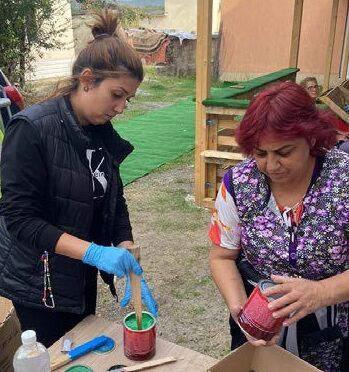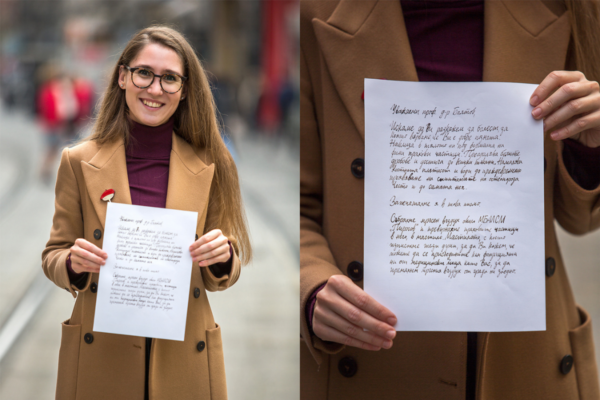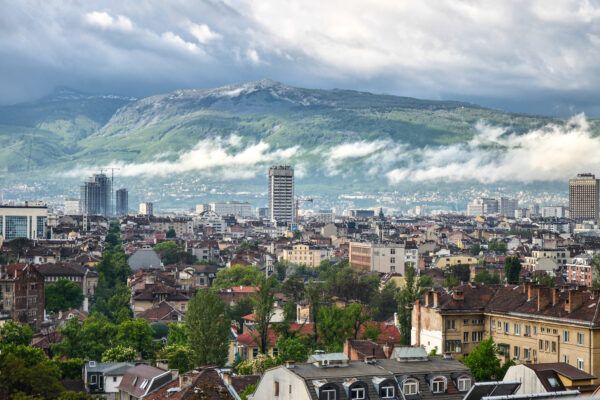The problem
In Bulgaria, air pollution claimed the lives of 11,000 people in 2019 (State of Global Air). Coal powered plants are a major source of air pollution across Europe and responsible for more than half of Bulgaria’s CO2 emissions. Last year, Bulgaria was ruled as breaching legal limits of air pollution by the European Court of Justice and ranked as the biggest emitter of sulphur dioxide across the continent. This comes at a cost to public health by increasing the risk of respiratory disorders, fertility problems and reduced cognitive ability, among other health issues.
Bulgaria’s clean air movement faces several challenges. Barriers such as limited air quality expertise and data makes it difficult to drive awareness and generate political and public demand for clean air. A scarcity of intersectional approaches to improving air quality adds to this challenge. While women and marginalised groups are among the worst affected by air pollution, they remain underrepresented in discussions about clean air interventions and policies.
Clean air activists also face economic constraints and job insecurity, particularly in smaller towns where advocacy can be challenging.
Clean air activism remains a risky and painstaking endeavour in Bulgaria, especially in smaller cities where the labour market or local institutions are dominated by special-interest groups. Activism tackling air pollution could entail the loss of one’s job or safety net, while partnerships with institutions might sometimes require compromising the integrity and effectiveness of one’s goals.
Aleksandra Stankova and Zara Rancheva, Bulgarian Fund for Women
The solution
In 2021, Bulgarian Fund for Women (BFW) established “A Breath of Fresh Air” – a capacity-building, awareness-raising and micro-granting scheme in one. The programme is the first of its kind in the country. BFW wanted to see women, ethnic minorities, rural populations, and people with disabilities and chronic illness mobilise and lead the budding movement for cleaner air in Bulgaria.
The inclusion of women as active stakeholders is essential to ensure that their needs and concerns are heard, and factored into the development of effective clean air strategies.
Aleksandra Stankova and Zara Rancheva, Bulgarian Fund for Women
The programme was delivered in two parts:
- Training: BFW invited partner organisations and experts on the topic of air pollution, healthcare and community building to engage with regional women activists. The Clean Air Academy took place over five days and introduced the topic of air quality and its relevance for women and children. Attendees included women activists, children’s organisations and air quality and environmental focused civil society organisations.
- Funding: Following the training, BFW rolled out their microgranting scheme to support women activists and organisations working – or interested in working – at the intersection of women’s rights and air quality. BFW supported 16 initiatives with a grant of 1600 BGN (roughly $891) each. The majority took place outside of Sofia, the capital: from regional centres (like Plovdiv and Veliko Tarnovo) to smaller towns and villages (such as Devnya and Byala).

Enhancing access to air quality measuring tools
Roman Rachkov designed a series of mobile air quality measuring devices to assess NO2 levels. He then trained 35 women activists from seven cities in the Breathe, Bulgaria network – Veliko Tarnovo, Devnya, Blagoevgrad, Ruse, Plovdiv, Dimitrovgrad – on how to use the devices. The devices are enabling activists to map air pollution hotspots and take this information to local decision-makers and representatives.

Highlighting the urgency of the air pollution crisis
Hayachi Roma Women’s Association established a learning space for mothers and young people of the Roma community in the neighbourhood of Novi Pazar. They delivered workshops, training and group discussions to help sensitise the community to environmental issues. By creating a space for community members to come together and learn, the project engaged individuals who would otherwise have little to no exposure to the topic of air quality.

Filling the air pollution knowledge gap
Dr Zornitsa Spassova, a scientist by training and feminist at heart, filled a significant gap in Bulgaria’s literature with her gender-sensitive review of how air pollution disproportionately impacts women. The review challenged the notion that the air we breathe impacts everyone equally, sparking much-needed discussion within Bulgarian academia and the media. Dr Spassova summarised her findings in a booklet which was shared with member organisations of the Breathe, Bulgaria national network, as a capacity-building and advocacy resource. This garnered interest from health agencies and environmental CSOs, some of which promoted the main findings alongside commentary by Dr Spassova.
Impact
By drawing attention to air pollution in smaller towns and cities across the country, BFW challenged the misconception that air pollution only impacts large cities.
BFW successfully strengthened networks for sharing and learning within the Bulgarian clean air movement. The connections made at The Clean Air Academy materialised into long lasting relationships between women-led organisations and clean air experts.
The Academy became an effective space for networking and coalition-building, which is still ongoing, both online, in the social media group of the Academy, and in person, through the country-wide coalition “Breathe, Bulgaria”. One of the big successes of the Academy was that many of the organisations present were able to join this coalition (still unlaunched at the time) due to the event. Its goals and aims – mobilizing civil society across the nation to advocate for cleaner air – were presented at the Academy and many of the members decided to take on the mantle and become active members due to this opportunity.
Aleksandra Stankova and Zara Rancheva, Bulgarian Fund for Women

